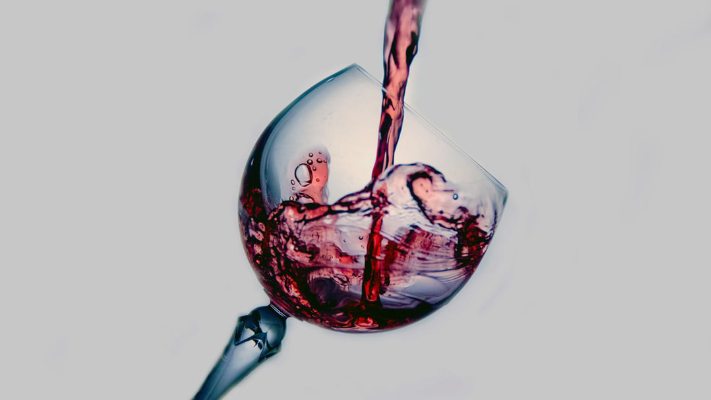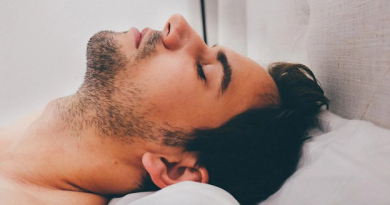How COVID-19 is Impacting Our Drinking (And Our Dating)
Judging from how most of us have responded to the news of the global pandemic, no one can probably claim that they’ve been particularly rational in the face of fear. Panic-stricken shoppers caused a massive toilet paper shortage, threats of the virus have been dismissed as being a hoax, and rallies have taken place around the nation in order to pre-emptively re-open the economy. Even those of us who have tried to remain calm might not be coping with this “new normal” very well. Our coping mechanisms might not be particularly healthy, as many of us have turned to comfort food or excessive binge-watching in an effort to escape reality.
Still others are trying to numb the overwhelming sense of dread with alcoholic beverages or mindless right-swiping on dating apps. And while those habits aren’t particularly healthy at any time, they may pose particular dangers during quarantine if we don’t keep ourselves in check.
Pandemic Drinking
The U.S. already consumes the largest volume of wine worldwide, with American drinkers clocking in at 33 million hectoliters in 2018 (compared to France’s 26.8 million). But just because most bars are closed, that doesn’t mean we’ve slowed our alcohol consumption.
In fact, preliminary data suggests many of us are drinking more than before. Online alcohol sales jumped by 55% in the week ending March 21, with overall alcohol sales made online up by 243% year-over-year. One survey found that one-fifth of American workers had stockpiled alcohol to prepare for self-isolation, with one-third saying they’re more likely to drink alcohol during the current conditions. Alcohol.org even reports that 35% of New Jersey residents and 38% of Pennsylvanians are drinking alcohol during working hours at home.
Fewer people are out driving — which means that even penalties for first DUI offenses (which can include license suspension, fines, community service, mandatory alcohol program attendance, overnight incarceration, and ignition locking device installation) may be able to be avoided since those who are drinking are less likely to get behind the wheel. However, that doesn’t mean these current conditions won’t be hazardous to your health.
Special drinks like “quarantinis,” social opportunities like Zoom happy hours, and the concept of “stay-at-home alcoholics” are becoming so widely accepted that many experts are concerned about how we’re choosing to cope with these coronavirus conditions. The loss of regular routines, jobs, regular socialization, and financial stability has left many people with very little to look forward to or to reference as certainties in their lives.
We tend to view alcohol as a way to relieve stress and to bring back happy memories, but the World Health Organization (WHO) is warning us not to overdo it:
As the organization noted in a statement released last month, “At times of lockdown during the COVID-19 pandemic, alcohol consumption can exacerbate health vulnerability, risk-taking behaviors, mental health issues, and violence.”
Since alcohol dependency and substance abuse can happen gradually, experts are urging people to stick to moderate consumption (one to two drinks per day) and to keep an eye on their drinking if it’s interfering with daily activities or feels hard to control. If you’re trying to be more mindful of your consumption, refrain from attending virtual happy hours, limit your social media scrolling, and prioritize physical activity as a means of distraction and stress relief.
Dating During Lockdown
Most people are, understandably, looking for a means of diversion during this time. And for some, dating apps provide both distraction and a boost of dopamine.
A recent Pew Research study revealed that approximately 12% of senior citizens use dating sites and apps, but their use is, of course, more prevalent among younger generations. People have been more active on these apps during quarantine, too; even if you can’t meet up with a date in person, it’s a good way to pass the time and get a self-esteem boost.
It helps, of course, that some of the most popular dating apps have made changes to promote safe use during the coronavirus. Tinder created the Tinder Passport, a feature that allows users to match with others in any location, rather than within a certain proximity, while Bumble released a dating guide that was put together by an epidemiologist to deter physical dates from happening. Coffee Meets Bagel shared virtual dating tips with users and Match’s free Dating While Distancing hotline was made available to users for 12 hours per day. It seems like these companies are definitely benefiting, as Bumble has reported huge increases in messages sent in cities that were under shelter-in-place orders and Hinge has noted that 70% of its users are interested in going on virtual dates. There’s even a new app called Quarantine Together that’s specifically made for digital dating during COVID-19.
Still, some users are trying to skirt the rules of social distancing in order to “quarantine and chill.” Dating apps like Tinder are trying to address this by sending messages to users that urge them to stay home and to keep dating digitally for now. That’s no guarantee that lonely singles won’t still try their luck at a corona meet-up, but others have warmed to the idea of video chatting on the first date. It’s pretty likely, however, that that trend isn’t likely to stick around after stay-at-home mandates are lifted.
Certainly, the pandemic has made many of us take a closer look at how we cope with change and anxiety. While an extra glass of wine or some mindless flirtation with a stranger may feel good in the moment, there’s a chance those behaviors could be harmful in the long run. It’s important to be mindful, above all else, during these uncertain times. As much as you might want to escape from reality, we won’t want to get too carried away for the sake of our physical health and emotional well-being.



